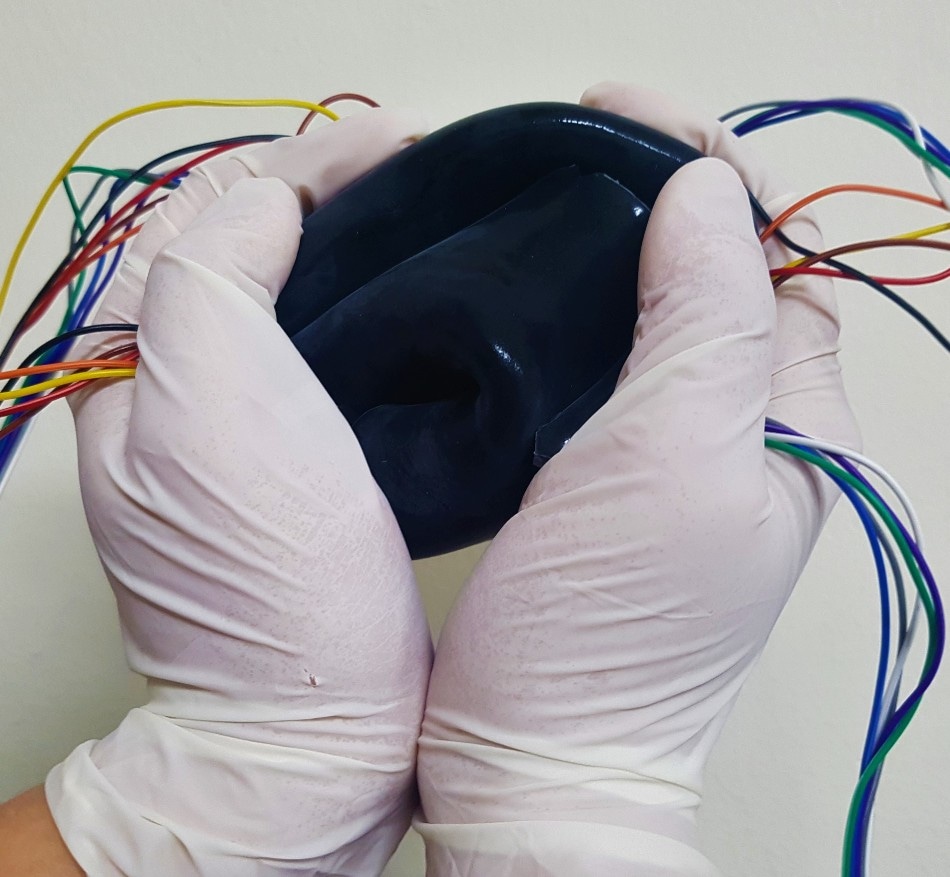Jun 21 2018
Bendable portable keyboards that can be used with computers and other electronic devices have already available in the market. However, their flexibility is limited and they are quite sizable to be packed for being transported. At present, scientists have designed a low-cost keyboard that is flexible, tough, and thin enough to be collapsed and inserted into a pocket without any damage to it. The research has been reported in the ACS Applied Materials & Interfaces journal.
 A new tough and flexible keyboard is usable even after squeezing it. (Image credit: American Chemical Society)
A new tough and flexible keyboard is usable even after squeezing it. (Image credit: American Chemical Society)
In present-day keyboards, a tactile sensor array is patterned on a multilayered soft sheet or rigid push buttons are inserted in a rollable sheet. These devices mandate complex fabrication processes, and due to their brittle components, they can endure only a slight amount of rolling or bending. However, Keemin Sohn, Ji Sik Kim, Kee-Sun Sohn, and collaborators aimed to design a keyboard with the ability to endure the severity of everyday handling, such as harsh crumpling and complete folding.
The researchers designed the device based on a sensor sheet they had earlier developed. In this case, they employed a sheet of soft Ecoflex™ silicone rubber embedded with conductive carbon nanotubes with the ability to respond to the push of a finger by varying electrical resistance. The team drew squares on the sheet’s surface to represent keys for each number, letter, or other character to show users where to press.
An artificial neural network was employed to train the keyboard to recognize the intended character or letter based on the location and pressure of pushes - and related changes in resistance - on the keyboard. They said that their simple keyboard operated ideally and outclassed all prevalent portable keypads with respect to flexibility, functionality, cost, and disposability. Indeed, the cost of one piece of the keyboard would only be $1, inexpensive enough to be discarded and replaced in case it stopped working.
The National Research Foundation of Korea supported the study.